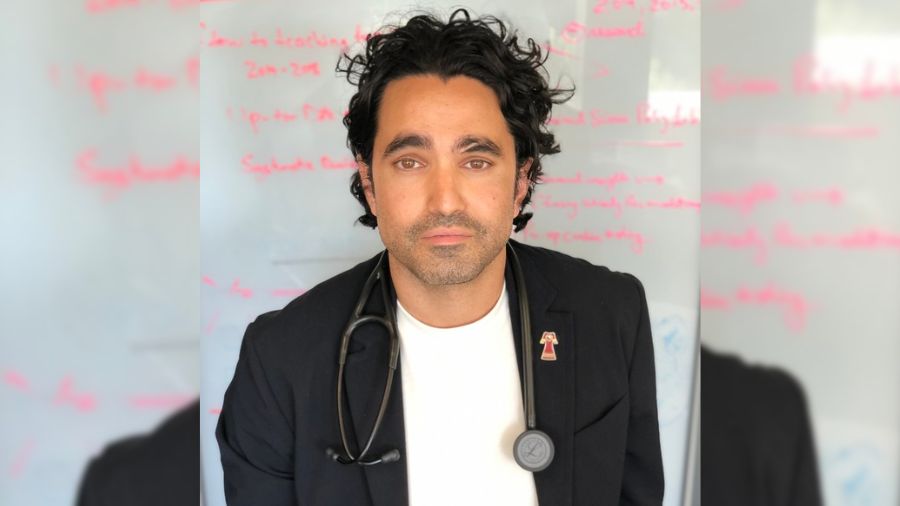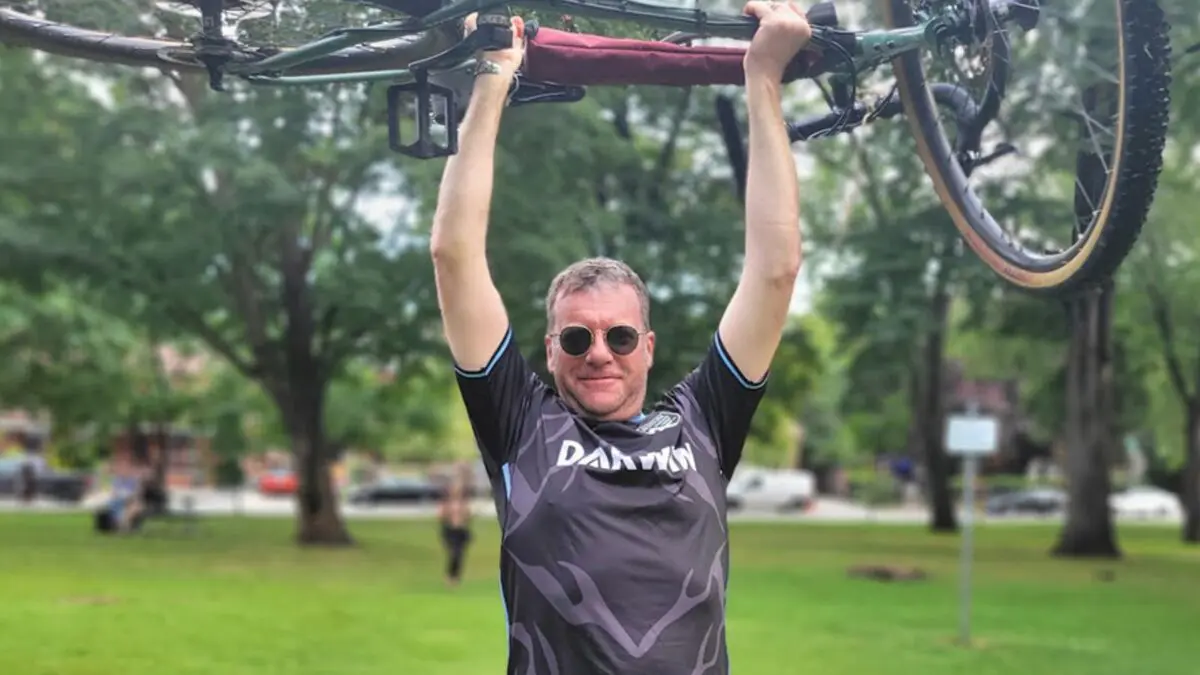“The pandemic has brought out a lot about what people are experiencing and my hope is that it continues to change the way we think about mental health, that there’s a better understanding that it’s okay to reach out, to share if they’re not doing well, to say ‘I need some help,'” says Lindsay Bailey, a social worker in the Emergency Department at Toronto General Hospital. (Photo: UHN)
Lindsay Bailey is feeling hopeful. Again.
The Omicron wave of the pandemic has ebbed. And, like so many of her colleagues across University Health Network, the social worker in the Toronto General Hospital Emergency Department (ED) is feeling exhausted and frustrated.
“But there’s this light at the end of the tunnel that we’re seeing and we’re holding on to,” she says. “People have always felt that, at the end of each wave.
“It’s mostly hopeful, but there’s that lingering feeling, a hesitation: will it come back and in what way?”
As a social worker in the ED, Lindsay, who joined UHN a few months after the start of the pandemic, has seen the negative impact of two years of isolation on people who were already vulnerable. Seniors cut off from family and friends for fear they become sick. Community supports chronically overwhelmed for those facing addictions or mental health challenges or experiencing homelessness.
“What I see on a day-to-day basis is that people who need supports aren’t getting them,” she says.
Still, Lindsay sees reason for optimism beyond the easing of pressures from the most recent wave. It’s in the increasing awareness mental health has seen over the past two years, and that it will translate into more and permanent supports – from governments at all levels, companies and across society.
“People are more aware of the importance of mental health, we’re talking about it and that’s a start,” she says. “The pandemic has brought out a lot about what people are experiencing and my hope is that it continues to change the way we think about mental health, that there’s a better understanding that it’s okay to reach out, to share if they’re not doing well, to say ‘I need some help.'”
For Lindsay, maintaining a regular exercise regimen – even when gyms were closed – has been a key to her mental well-being during the pandemic. She’s begun using a meditation app regularly. More broadly, she also thinks the pandemic is giving people “a different sense of purpose,” so they don’t have to be busy all the time and have a crowded social calendar to be fulfilled. Slowing down, taking stock is okay.
“There’s a hope that we do see positive change moving forward, that the long-lasting effects of the pandemic aren’t the isolation and the fear and the hurt people have been through,” she adds. “I hope it’s us coming together in a new space, recognizing the importance of mental health and community.”


